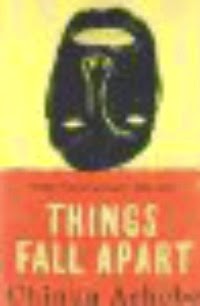
(The link above is a clickable image.)
I like books, ones where I can relate with the characters. Ones where I feel what the characters are feeling. Ones where I connect. Eugenia "Skeeter" Phelan is the outcast in Jackson, Mississippi, comparing herself to Boo Radley from To Kill a Mockingbird. She doesn't exactly fit the description of a woman in 1962; she has a college degree, she has kinky curls, she's a smart individual who is interested in the equality of her friends.
There are two groups of white people in Jackson: those who care, and those who don't. The colored women, the maids who have taken care of these said people, are now taking care of their children. The average housewife is more worried about appearances than fair treatment. They dress their babies in nice clothes, punish them like they are really the ones bringing them up, and mistreat the women who keep up the appearance of their homes for less than minimum wage. Women like Hilly Holbrook and Elizabeth Leefolt leave their duties in the hands of women who have their own homes to take care of, their own children to feed, and their own lives to handle, but manage another family as well. Aibileen and Minnie face the every day challenges of discrimination and segregation from these families, even random strangers off of the street, but still have the strength to keep on going.
Skeeter is one in maybe the three percent of people who care about the help. She's a amateur journalist who takes on the anonymous title, but wants to do more than just a column in the newspaper. When she returned home from college, she realized she didn't view the help the same way the other women in Jackson did. She didn't think of them as "help"; she viewed them as human beings who had a choice and a say. The longer Skeeter stayed in Jackson, the more she tip toed into the growing Civil Rights Movements. Though she is an activist, she hides this, and succumbs to her mothers expectations of becoming a wife. Against all views Skeeter had on herself, she had a healthy relationship with Stuart, and was even talking about marriage. All the while, she was beginning a revolution of her own by writing a book of tales from the local help. She isn't afraid of visiting the women at night so she can record their stories. Against the odds, Skeeter's anonymous book was a huge hit, and her life seemed to be going relatively well for her. Until she confided to Stuart that she was the author and an activist.
Aibileen and Minnie never left her side, though, and were very grateful that their voices were able to be heard. They even picked up another activist along the way- the very odd, but very interesting Cecilia Foote.
I didn't choose this book out of whim, like I usually do when I read novels. I chose it because of its meaning. I chose it because it addressed an issue so prevalent then, and even now. It was made to, not only provide entertainment, but to also prove that we are all equal.
I definitely recommend this to anyone who are willing to read it. It's a fabulous, well written historical fiction that captivated me from the very first sentence.











